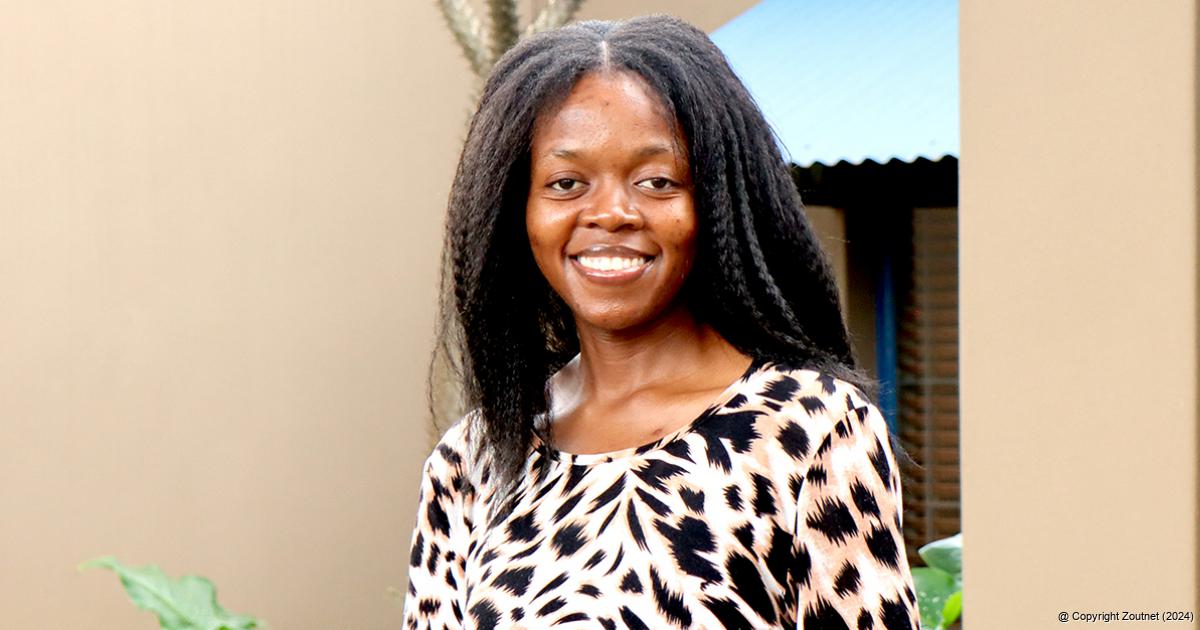

ADVERTISEMENT:

Faith Ntakadzeni Phathela, the independent candidate from Vhembe. Photo: Elardus van Zyl.
Faith may be bruised, but she stands strong on beliefs
News in brief - Date: 14 June 2024
“The independent candidates were like an unplanned pregnancy to the IEC. The New Nation Movement took the president and IEC to court for independent candidates to be allowed to contest, and it didn’t feel like we were well received,” said Faith Phathela, one of the handful of independent candidates who contested the national elections.
Judging by the outcome of the elections, the independent candidates did not fare very well For the first time in the history of this country, independent candidates were allowed to compete for votes, but none of them could claim seats in either the national parliament or the provincial legislatures.
Faith Ntakadzeni Phathela (36) comes from Louis Trichardt and is one of only two independent female candidates in the country whose names appeared on the ballot papers. She is one of three who competed in Limpopo, hoping to be elected to represent her region as a parliamentarian. In the end, she received fewer than 300 votes, but she believes this was a very useful learning experience on a very uneven playing field.
During an interview shortly after the results became available, Faith described the process as extremely unfair towards the independent candidates. “We were only informed on 26 March, two months before election day, that our names would appear on the ballot paper. That was when I knew that I needed to start my preparations. The certificates stating that we were now candidates in the elections were issued on Friday, 12 April, so the time was very, very short,” she said.
Just to get to that stage had already been a struggle. Faith had to pay a R20,000 fee and then submit a nomination list containing 1,000 names, with their ID numbers. “Many potential voters were hesitant to share their personal information due to concerns about misuse. To meet the requirement, we had to collect 1,000 valid signatures, but because some of them were invalid ID’s or non-registered voters, we had to collect around 1,500 signatures to be on the safe side,” she said.
A clear lack of trust also exists in the Independent Electoral Commission (IEC). “The IEC is vulnerable to political influence since politicians appoint its head. For instance, Sy Mamabolo’s appointment letter was signed by an ANC contestant, raising concerns about impartiality,” said Faith.
The system allows for observers and party representatives to be present at all poll stations and during the counting process, but this is not always practical. Independent candidates do not have the resources and rely on a handful of volunteers to assist them. “There are concerns about ballot manipulation and insufficient oversight. Additionally, the practice of sending underpaid or easily bribed political agents to voting stations contributes to the perception that politics is corrupt. This environment makes it difficult for smaller parties to compete fairly,” she added.
Faith is disappointed that she did not get the opportunity to serve her country in parliament, believing that she could have made a huge difference. “Public servants are going through a lot. Some of them are frustrated because they’re understaffed, systems are not working, and often they don’t have the necessary equipment to do their work. Instead of fighting them, we need to sympathise with them, understand what they are going through, and try to support them,” Faith said.
She encouraged people to exercise their right to vote in future. “A low voter turnout significantly impacts government operations. In the recent elections, only around 50% of registered voters participated, which led to wasted resources and frustration for the IEC,” she said.
She explained that voting is essential because it influences where politicians focus their development efforts. “Areas with higher voter turnout are more likely to receive attention and resources from the government. Not voting can lead to the neglect of communities, as politicians prioritise regions where they receive the most support,” she said.
Faith believes that independent candidates can make a massive contribution within the government. Independent candidates can give an impartial vote on matters and are ideal candidates for positions of chairpersons in portfolio committees.
“We’ve seen the chaos in the previous government, where political parties were disrespecting the Speaker and disrespecting one another. As independents, we respect political parties, and that is why political parties should also respect us. We would be the ideal candidates to serve as Speakers,” she added.
Faith has her reservations about a government of national unity, which is the most likely scenario for the country. “All we can do right now is to hold the government accountable and to serve the nation as the people’s advocates, up until that time when South Africa will then choose us to go and be their voice in parliament,” she said.
Faith, as a very spiritual person, believes that when God opens a door, no one can shut it. If God’s decision is not to send them to parliament now, she accepts. “There’s a possibility of re-elections if the government has not yet been constituted within 14 days after the results are announced. The battle is not over yet and we are not going to give up, because politics is a calling and not a career. The plan now is to prepare ourselves for 2026,” she said.

Recent Articles
-

Engineering graduate now finds solace in farming
23 June 2024 By Bernard Chiguvare -

Principal Nemakhavhani lays down chalk after 38 years
22 June 2024 By Maanda Bele -

Community builder Pastor Malima honoured
22 June 2024 By Kaizer Nengovhela -

Change in procedure for collection of stray animals
22 June 2024

